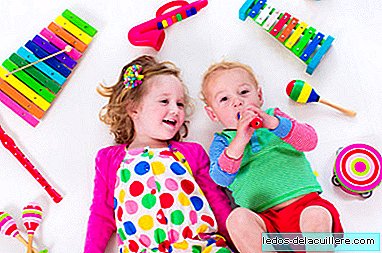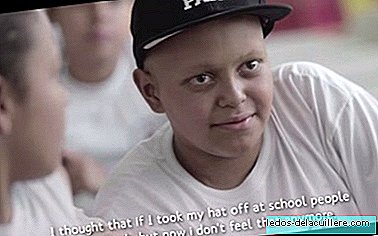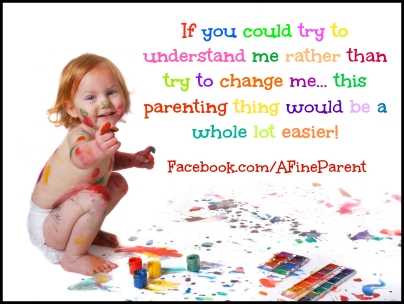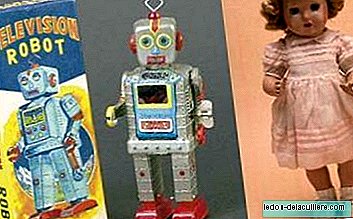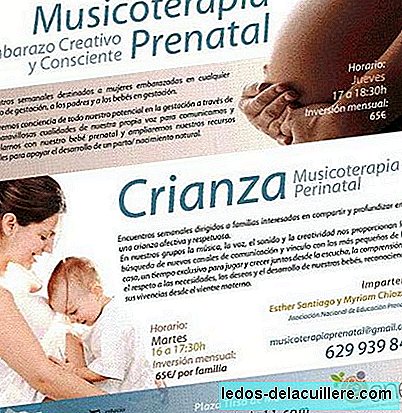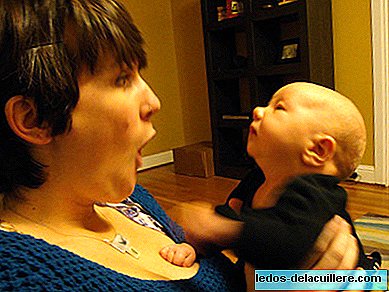
There are many ways to help the child begin to speak, a milestone in the evolution of children, which begin with their babble very soon. But, What should we not do to stimulate the child's language?
When children start talking, we should not anticipate what they are going to tell us, and we must give them time to respond. If we constantly cut words or end them for him, he will think that his own language is not important, and he will also "accommodate" to speak for him.
It is logical, if you already know what I want before you speak, no effort is necessary. The child has to make an effort to speak, we must encourage him to say his words (and later phrases) and not give him what he asks ahead of time (many of the first interactions are to ask for something).
The child will understand that no effort is necessary, but it will be frustrating for him later when he goes to kindergarten or stays with other relatives ... because only mom and dad understand him.
The use of diminutives or invented words It is somewhat controversial. Although they are a widespread "pre language", it is possible that it delays the appearance of some words. If they learn to say "pupo" or "eta", they will not make an effort to say "pacifier", "cookie" ... However, we must remember that the baby's first words are of this type, since the level of development of the Child prevents him from speaking with more complex words. And we also have to stimulate these first communications.
We should not be angry or moody if the child does not pronounce a sound well or does not know how to say a word, because this produces the opposite effect of what we want, the child can withdraw and stop being interested in trying that little "challenge."
The communication with the baby must be bidirectional, that is, do not load the child with videos or discs so that they "stimulate" him because what will best encourage him to speak are our words. From a very young age we will establish "proto-conversations" with them, singing, asking, talking ... And he will answer us with his eyes, his laughs, his gurgling ...
When they start talking, we can try to ask them open questions, rather than closed questions with the answer "yes" or "no", since in this way we favor the extension of vocabulary.

Each child, at their own pace
We do not have to worry if the child is slow to speak, since if there is no physiological problem, everyone ends up talking sooner or later. Every child is a world, and we can hear their first words at 10 months or at 20. We have to be patient and understanding, not set ourselves impossible goals because it makes no sense to try to accelerate the natural pace of development of the child.
Some warning signs that could indicate that there is a problem in language development before the year they are: that the baby does not babble or vocalize, that does not understand simple orders or points to objects at 12 months of age, that does not fix the look on the face of those who speak to him or look for the origin of a sound ...
Another important point is that you have to avoid comparing it with your siblings or other children, especially when they are older, even if they don't speak or just do it, they understand everything. And for something they say that comparisons are odious: nobody likes to be compared to others (and less if it is to emphasize that we are "inferior" in something).
Along these lines, we must avoid ridiculing the child, laugh if he pronounces badly or make him continually repeat the new words he has learned to "delight" the public (although it is difficult not to teach others everything they have learned, right? ?)
Finally, remember that it is important to teach the baby to communicate before they can speak, since they are very young, to facilitate their happy growth and contact with the words from the beginning, and little by little the child will be surrounded by his own words .
Communication is the basis of our society, but also of our family, and we can help our son get started in this complex and valuable "art" from a very early age. We don't have to get obsessed with the results, just seek a stimulating and favorable environment for your first words.


